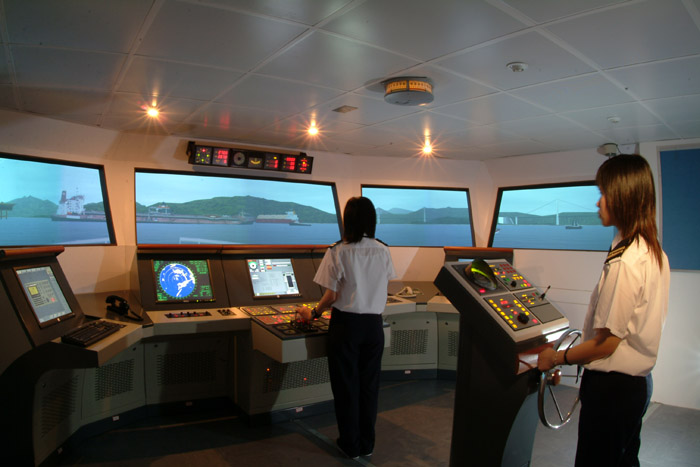Breadcrumb
- Home
- Non local Student Admissions
- Programmes
- Higher Diploma in Maritime Studies
EG114712
Higher Diploma in Maritime Studies

The programme provides students with professional maritime knowledge, practical skills for shipboard operations and training on practices in maritime industries for the purpose of preparing them to pursue further study and development in the seafaring career and marine-related sectors.
The programme is designed with an emphasis on generic and language training, whole-person development and workplace experience to better prepare students for further studies and employment after graduation.
Please refer to General Entrance Requirement
Graduates may be employed in the merchant navy as deck cadets. They may also find their job opportunities in ship management / agency companies, ferry companies, stevedoring / sea freight agents, dockyards, warehousing / container terminals, fuel / inventory supply companies, marine consultancy companies, Marine Department or disciplinary forces of HKSAR, etc.
Graduates may apply for the upgrading courses leading to the issue of Class 3 Deck Officer Certificate of Competency, Sea-going or River Trade.
Graduates may apply for admission to relevant Degree programmes offered by the local universities:
- The Hong Kong Polytechnic University
Graduates will be granted a remission of sea service by the Marine Department of HKSAR when appearing for the examination leading to the issue of Class 3 Deck Officer Certificate of Competency, Sea-going or River Trade. Graduates who have attained the required results in their studies can also be exempted from the written examination papers.
- This programme would be conducted at IVE (Tuen Mun) and Maritime Services Training Institute in Tai Lam Chung.
- Students may be required to attend classes on other VTC campuses. VTC reserves the right to cancel any programme, revise programme content or change the offering institute(s) / campus(es) / class venue(s) if circumstances so warrant.
- During Year 1 of the programme, students are required to take a medical check at their own expense. Applicants should note that some marine-related employers may impose requirements on physical attributes such as good eye-sight and no colour blindness.
- For details please contact:
Maritime Services Training Institute: 2458 3833
- Fundamentals of Mathematics for Maritime Studies
- Occupational Training (B)
- General Ship Knowledge (A)
- Ocean Navigation (A)
- Electronic Navigation Systems (A)
- Cargo Work (A)
- Essential Workplace Communication: Effective Oral Interaction
- Whole Person Development - Mindshift: Achieving Personal Growth & Effectiveness
- IT Essentials - Smart Living
- Occupational Training (A)
- General Ship Knowledge (B)
- Ocean Navigation (B)
- Electronic Navigation Systems (B)
- Navigational Watch-keeping
- Marine Meteorology
- Vocational Chinese Communication: Putonghua Conversation and Reports
- Essential Workplace Communication: Digital Written Correspondence
- Whole Person Development - Collaboration, Teamwork & Social Engagement (Part A)
- Elementary First Aid and Proficiency in Medical First Aid (Combined) Certificate
- Security Training for Seafarers with Designated Security Duties
- Personal Safety and Social Responsibilities
- Personal Survival Techniques
- Fire Prevention, Fire Fighting and Advanced Fire Fighting (Combined)
- Proficiency in Survival Craft and Rescue Boats other than Fast Rescue Boats
- Vocational Chinese Communication: Putonghua Presentations, Administrative and Technical Text Writing
- Professional Workplace Communication: Storytelling and Job Search
- Whole Person Development - Collaboration, Teamwork & Social Engagement (Part B)
- Occupational Training (C) Part A
- Chartwork and Coastal Navigation
- Bridge Resource Management
- Ocean Navigation (C)
- Ship Safety / Security and Emergency Responses
- Final Year Project (Phase 1)
- Professional Workplace Communication: Pitching and Persuasive Presentation
- Whole Person Development - Enhancing Competencies in the 21st Century Workplace
- Enrichment Module A
- Occupational Training (C) (Part B)
- Ship Construction and Maintenance
- Ship Stability (A)
- Cargo Work (B)
- Passage Planning (A)
- Final Year Project (Phase 2)
- Professional Workplace Communication: Proposal and Report Writing
- Enrichment Module B